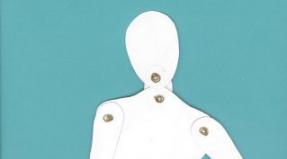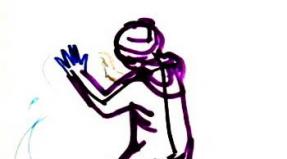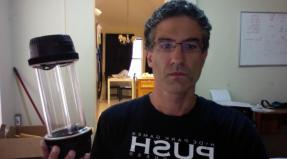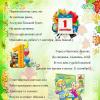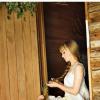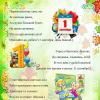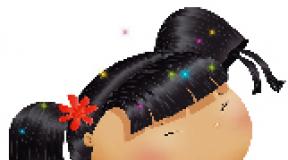When Raskolnikov sees his first dream. Analysis of the meaning and meaning of Raskolnikov's dreams based on the novel Crime and Punishment (Dostoevsky F. M.). Description of Raskolnikov's next dream
RASKOLNIKOV'S DREAMS
In his novels, Dostoevsky reveals the complex processes of the characters' inner life, their feelings, emotions, secret desires and fears. In this aspect, the dreams of the characters are especially important. However, Dostoevsky's dreams often have a plot-forming meaning.
Let's try to analyze the dreams and dreams of Raskolnikov in the novel Crime and Punishment. The hero sees his first dream on Petrovsky Island. In this dream, Rodion's childhood comes to life again: together with his father on a holiday, he goes out of town. Here they see a terrible picture: a young man, Mikolka, leaving the tavern, with all his might whips his “skinny ... ugly nag”, which is not strong enough to carry an unbearable cart, and then finishes it off with an iron crowbar. The pure childish nature of Rodion protests against violence: with a cry he rushes to the downtrodden savraska and kisses her dead, bloody muzzle. And then he jumps up and rushes with his fists at Mikolka. Raskolnikov experiences here a whole range of very different feelings: horror, fear, pity for the unfortunate horse, anger and hatred for Mikolka. This dream shocks Rodion so much that, upon waking up, he renounces "his damned dream." Such is the meaning of the dream directly in the external action of the novel. However, the meaning of this dream is much deeper and more significant. Firstly, this dream anticipates future events: the red shirts of drunken men; Mikolka's red, "like a carrot" face; a woman "in kumach"; an ax that can immediately end the unfortunate nag - all this predetermines future murders, hinting that blood will still be shed. Secondly, this dream reflects the painful duality of the hero's consciousness. If we remember that a dream is an expression of a person’s subconscious desires and fears, it turns out that Raskolnikov, fearing his own desires, still wanted the unfortunate horse to be beaten to death. It turns out that in this dream the hero feels himself both Mikolka and a child, whose pure, kind soul does not accept cruelty and violence. This duality, the inconsistency of Raskolnikov's nature in the novel, is subtly noticed by Razumikhin. In a conversation with Pulcheria Aleksandrovna, Razumikhin notes that Rodion is “gloomy, gloomy, arrogant and proud”, “cold and insensitive to the point of inhumanity”, and at the same time “generous and kind”. “It’s as if two opposite characters alternate in him,” exclaims Razumikhin. Two opposite images from his dream - a tavern and a church - also testify to the painful split of Raskolnikov. A tavern is what destroys people, it is the focus of debauchery, recklessness, evil, this is the place where a person often loses his human appearance. The tavern always made an “unpleasant impression” on Rodion, there was always a crowd, “so they shouted, laughed, swore ... ugly and hoarsely sang and fought; such drunken and terrible faces always wandered around the tavern. The tavern is a symbol of depravity and evil. The church in this dream personifies the best that is in human nature. It is characteristic that little Rodion loved the church, twice a year he went with his father and mother to mass. He liked the old images and the old priest, he knew that memorial services were served here for his dead grandmother. The tavern and the church here, thus, metaphorically represent the main landmarks of a person in life. It is characteristic that in this dream Raskolnikov does not reach the church, does not fall into it, which is also very significant. He is delayed by the scene near the tavern.
Significant here is the image of a skinny peasant savra woman, who cannot withstand an unbearable burden. This unfortunate horse is a symbol of the unbearable suffering of all the “humiliated and insulted” in the novel, a symbol of Raskolnikov’s hopelessness and dead end, a symbol of the disasters of the Marmeladov family, a symbol of Sonya’s position. Katerina Ivanovna’s bitter exclamation before her death echoes this episode from the hero’s dream: “They left the nag! Broke it!”.
Significant in this dream is the image of the long-dead father Raskolnikov. The father wants to take Rodion away from the tavern, does not tell him to look at the violence being committed. The father here seems to be trying to warn the hero from his fatal act. Recalling the grief that befell their family when Rodion's brother died, Raskolnikov's father leads him to the cemetery, to the grave of the deceased brother, towards the church. This is, in our opinion, the function of Raskolnikov's father in this dream.
In addition, we note the plot-forming role of this dream. It appears as “a kind of core of the whole novel, its central event. Concentrating in itself the energy and strength of all future events, the dream has a formative significance for other storylines, “predicts” them (the dream is in the present tense, speaks of the past and predicts the future murder of an old woman). The most complete representation of the main roles and functions (“victim”, “tormentor” and “compassionate” in the terminology of Dostoevsky himself) sets the dream of killing a horse as a plot core that is subject to textual deployment,” G, Amelin and I. A. Pilshchikov note. Indeed, threads from this dream stretch throughout the novel. Researchers single out character “troikas” in the work, corresponding to the roles of “tormentor”, “victim” and “compassionate”. In the hero’s dream, this is “Mikolka - the horse - Raskolnikov the child”, in real life it is “Raskolnikov - the old woman - Sonya”. However, in the third "troika" the hero himself acts as a victim. This "troika" - "Raskolnikov - Porfiry Petrovich - Mikolka Dementiev." In the development of all plot situations, the same motives sound here. The researchers note that in all three plots, the same textual formula begins to unfold - “baffle” and “butt on the crown”. So, in Raskolnikov's dream, Mikolka "bashes his poor horse in a big way" with a crowbar. About the same way the hero kills Alena Ivanovna. “The blow fell on the very top of the head ...”, “Here he hit with all his might once and again, all with the butt and all at the crown.” The same expressions are used by Porfiry in a conversation with Rodion. “Well, who, tell me, of all the defendants, even of the most meager peasant, does not know that, for example, they will first begin to lull him with extraneous questions (as your happy expression), and then suddenly they will be taken aback in the very crown, with a butt- s…” the investigator notes. Elsewhere we read: “On the contrary, I should have<…>to distract you, that way, in the opposite direction, and suddenly, as if with a butt on the crown of the head (in your own expression), and stunned: “What, they say, sir, did you deign to do in the apartment of the murdered woman at ten o’clock in the evening, and almost not at eleven?
In addition to dreams, the novel describes three visions of Raskolnikov, his three "dreams". Before committing a crime, he sees himself "in some kind of oasis." The caravan is resting, the camels are lying peacefully, magnificent palm trees are all around. A stream gurgles nearby, and “wonderful, such wonderful blue water, cold, runs over multi-colored stones and such clean sand with golden sparkles ...” And in these dreams, the hero’s painful duality of consciousness is again indicated. As B.S. Kondratiev, the camel here is a symbol of humility (Raskolnikov resigned himself, renounced his "cursed dream" after the first dream), but the palm tree is "the main symbol of triumph and victory", Egypt is the place where Napoleon forgets the army. Having renounced his plans in reality, the hero returns to them in a dream, feeling like a victorious Napoleon.
The second vision visits Raskolnikov after his crime. As if in reality, he hears how the quarter warden Ilya Petrovich terribly beats his (Raskolnikov) landlady. This vision reveals Raskolnikov's hidden desire to harm the landlady, the feeling of hatred, the hero's aggression towards her. It was thanks to the landlady that he ended up in the station, had to explain himself to the assistant quarter warden, experiencing a mortal sense of fear and almost not controlling himself. But Raskolnikov's vision also has a deeper, philosophical aspect. This is a reflection of the painful state of the hero after the murder of the old woman and Lizaveta, a reflection of his feeling of alienation from his past, from "old thoughts", "old tasks", "old impressions". The landlady here is obviously a symbol past life Raskolnikov, a symbol of what he loved so much (the story of the relationship between the hero and the daughter of the landlady). The quarter warden, on the other hand, is a figure from his “new” life, the countdown of which was marked by his crime. In this “new” life, he “as if with scissors cut himself off from everyone”, and at the same time from his past. Raskolnikov is unbearably painful in his new position, which is imprinted in his subconscious as damage, harm inflicted on the past of the hero by his present.
The third vision of Raskolnikov occurs after his meeting with a tradesman who accuses him of murder. The hero sees the faces of people from his childhood, the bell tower In th church; “billiards in one tavern and some officer at the billiards, the smell of cigars in some basement tobacconist, a tavern, a back staircase ... Sunday ringing of bells comes from somewhere ...”. The officer in this vision is a reflection of the real life impressions of the hero. Before his crime, Raskolnikov hears a conversation between a student and an officer in a tavern. The very images of this vision echo the images from Rodion's first dream. There he saw a tavern and a church, here - the bell tower of the B-th church, the ringing of bells and a tavern, the smell of cigars, a tavern. The symbolic meaning of these images is preserved here.
Raskolnikov sees the second dream after his crime. He dreams that he again goes to Alena Ivanovna's apartment and tries to kill her, but the old woman, as if mocking, bursts into quiet, inaudible laughter. Laughter and whispers can be heard in the next room. Raskolnikov is suddenly surrounded by many people - in the hallway, on the landing, on the stairs - silently and waiting, they look at him. Terrified, he cannot move and soon wakes up. This dream reflects the subconscious desires of the hero. Raskolnikov is burdened by his position, wanting to reveal his "secret" to someone, it is hard for him to carry it in himself. He literally suffocates in his individualism, trying to overcome the state of painful alienation from others and himself. That is why in Raskolnikov's dream there are many people next to him. His soul yearns for people, he wants community, unity with them. In this dream, the motive of laughter reappears, which accompanies the hero throughout the novel. After committing the crime, Raskolnikov feels that "he killed himself, not the old woman." This truth seems to be open to people who surround the hero in a dream. An interesting interpretation of the hero's dream is offered by S.B. Kondratiev. The researcher notices that laughter in Raskolnikov's dream is "an attribute of the invisible presence of Satan", demons laugh and tease the hero.
Raskolnikov sees his third dream already in hard labor. In this dream, he, as it were, rethinks the events that have occurred, his theory. It seems to Raskolnikov that the whole world is condemned as a victim of a "terrible ... pestilence." Some new microscopic creatures, trichinas, have appeared, infecting people and making them demon-possessed. The infected do not hear and do not understand others, considering only their opinion to be absolutely correct and the only correct one. Leaving their occupations, crafts and agriculture, people kill each other in some kind of senseless malice. Fires start, hunger starts, everything around perishes. All over the world, only a few people can be saved, "pure and chosen", but no one has ever seen them. This dream is an extreme embodiment of Raskolnikov's individualistic theory, showing the threatening results of its harmful influence on the world and humanity. It is characteristic that individualism is now identified in the mind of Rodion with demonism and madness. In fact, the hero's idea of strong personalities, Napoleons, to whom "everything is allowed," now seems to him like an illness, madness, clouding of the mind. Moreover, the spread of this theory throughout the world is what Raskolnikov is most concerned about. Now the hero realizes that his idea is contrary to human nature itself, reason, the Divine world order. Having understood and accepted all this with his soul, Raskolnikov experiences moral enlightenment. It is not for nothing that it is after this dream that he begins to realize his love for Sonya, which reveals to him faith in life.
Thus, the dreams and visions of Raskolnikov in the novel convey his inner states, feelings, innermost desires and secret fears. Compositionally, dreams often anticipate future events, become the causes of events, move the plot. Dreams contribute to the mixing of real and mystical narrative plans: new characters seem to grow out of the hero's dreams. In addition, the plots in these visions echo the ideological concept of the work, with the author's assessment of Raskolnikov's ideas.
The first dream of Rodion Raskolnikov (Chapter 5 of the first part) in the novel by F. M. Dostoevsky « Crime and Punishment"Plan for writing:
1. Sleep in nature. The dream of killing a horse is an excursion into the past of the hero.
The essence of Raskolnikov, his soul of a pure, compassionate person, a dream helps to understand the hero, to penetrate into the hidden corners of the human soul,
In the scene of the killing of the horse, Dostoevsky defines the internal contradictions of Raskolnikov,
The path of the hero from the fall to purification is outlined,
The ambiguity and symbolism of a dream (images, artistic details, colors are determined, which will subsequently determine the events and fates of the characters),
3. Sleep - a kind of plan, according to which Raskolnikov is invited to act - “God! he exclaimed, “can I really take an ax, start hitting her on the head, crush her skull ...”
4 . Raskolnikov's first dream is one of the key moments in the plot of the novel Crime and Punishment.
Working materials for the essay
(analysis - study of the text of the novel "Crime and Punishment")
Sleep content:
How old was the hero in the first dream? (“He is about seven years old and walks on a holiday, in the evening, with his father outside the city.”
What attracts little Rodya? (“A special circumstance attracts his attention: this time there seems to be a walk ... They are walking with their father along the road to the cemetery and pass by a tavern ...”
What struck Rodya? (“There was a small, skinny, savory peasant nag harnessed to such a large cart ... Everyone climbs into Mikolkin’s cart with laughter and witticisms ...” -
What happens in the cart and in the crowd? (“Laughter in the cart and in the crowd doubles, but Mikolka is angry and in a rage flogs the mare with quickened blows, as if she really believes that she will run at a gallop. kick".
How does little Rodya react to this? (“Daddy, why did they ... the poor horse ... killed!” He sobs, but his breath is captured, and the words are screaming out of his tight chest ... He wraps his arms around his father, but his chest is oppressing, oppressing. "The soul of a seven-year-old boy rebels, he pity the poor horse.
2. What does Raskolnikov's first dream reveal? secret meaning sleep.
The hero rushes between mercy and violence, good and evil. The hero is split in two.
The dream dramatizes Raskolnikov's mental struggle and major event in the novel: threads stretch from it to other events.
Trying to get rid of the obsession, Raskolnikov seeks to get as far away from home as possible. Falling asleep in nature. It is obvious that the terrible theory about the division of people into "trembling creatures" and "having the right" is hidden not in the St. Petersburg slums, but in the mind of the hero himself.
The dream plays a cruel joke with Raskolnikov, as if giving him the opportunity to make a "trial test", after which the hero goes to the old woman pawnbroker - for the second attempt.
- “In the last part of the dream, undoubtedly, the features of the terrible plan invented by him were reflected - let the horses for now. (Daria Mendeleeva).
Horrible dream Raskolnikov has ambiguity and symbolism, is an excursion into the past and at the same time predestination, a kind of plan according to which he had to act.
Sleep is an expression of the unconscious in the human psyche. Therefore, as an element of a work of art, this is one of the means of creating an image, an opportunity to show the inner world of the hero, his latent thoughts hidden from him .
The role of dreams in revealing the inner world of Raskolnikov
Each of these episodes has its own "double" in real life.
- The first dream of the hero is a reflection of his inner state before the murder, a state of painful perception of the injustice of the world, the world of the humiliated and offended. The dream of killing a horse (in the perception of a child) characterizes the inhumanity of this world, as well as the kindness of Raskolnikov himself, has a compositional double - the death of Katerina Ivanovna (“They drove the nag”);
- Raskolnikov's second dream ( about the beating of the hero's landlady by the quarter), on the one hand, a continuation of the theme of the lawlessness of this world, on the other hand, a foreshadowing of the hero's future cut off from people, i.e. his punishment. The compositional "double" is the murder of the old pawnbroker and Lizaveta.
- Raskolnikov's third dream re-murder old women) - an analogue of a real murder, a secondary living of the deed. The revived old woman (the literary counterpart of the old countess from Pushkin's The Queen of Spades) is a symbol of the defeat of the hero's theory.
- The last dream of the hero (he sees him in hard labor) is an allegorical embodiment of the realization of the theory, a symbol of the hero's liberation from the power of theoretical constructions, his rebirth to life. The literary analogue is Voltaire's philosophical treatise on the madness of mankind. This dream has no real compositional counterpart, which is symbolic.
The hero refuses the theory - it cannot be realized.
Raskolnikov's dreams are a kind of dotted line, which at different levels reflects the ideological and artistic content of the novel.
Did you like it? Do not hide your joy from the world - shareMaterials are published with the personal permission of the author - Ph.D. Maznevoy O.A. (see "Our Library")
In the composition of the novel by F.M. Dostoevsky's "Crime and Punishment", Raskolnikov's dreams occupy the most important place, being an integral part of the construction of the work. Dreams in the novel are a reflection of the inner world of the hero, his ideas, theories, thoughts hidden from his consciousness. This is an important component of the novel, which gives the reader the opportunity to penetrate Raskolnikov, to understand the very essence of his soul.
Dreams in psychology
The study of a person's personality is a very delicate science, balancing between precise attitudes and philosophical conclusions. Psychology often operates with such mysterious and ambiguous categories as "consciousness", "unconscious", "psyche". Here, to explain the actions of a person, his inner world, sometimes hidden even from the patient himself, is dominant. He drives his immoral thoughts and feelings deep inside, ashamed to admit them not only to others, but even to himself. This causes mental imbalance, contributes to the development of neuroses and hysteria.
To unravel the state of a person, the true causes of his moral suffering, psychologists often use hypnosis or solving dreams. It is a dream in psychology that is an expression of the unconscious in the human psyche, his repressed "I".
Sleep as a method of psychoanalysis in the novel

Dostoevsky is a very subtle psychologist. He seems to turn the souls of his characters inside out in front of the reader. But he does this not explicitly, but gradually, as if painting a picture in front of the viewer, in which everyone should see special patterns. In the work "Crime and Punishment" a dream is a way of revealing Raskolnikov's inner world, his experiences, emotions and thoughts. Therefore, it is so important to determine the content of Raskolnikov's dreams, their semantic load. It is also necessary in order to understand both the novel itself and the personality of the hero.
Church and bar

During the entire work, Rodion Romanovich dreams five times. More precisely, three dreams and two semi-delusions occurring on the verge of consciousness and unreality. Dreams of Raskolnikov summary which allows you to capture the deep meaning of the work, allow the reader to feel the internal contradictions of the hero, his "heavy thoughts". This happens in the case of the first dream, in which to some extent there is internal struggle hero. This is very important point. This is a dream before the murder of an old pawnbroker. It needs to be focused on. This is a system-forming episode, from which, like a stone thrown into the water, waves diverge on each page of the novel.
Raskolnikov's first dream is a product of a morbid imagination. He sees him in his "room" after he met a drunk girl on the boulevard. The dream brings Rodion back to his distant childhood, when he lived in his hometown. Life there is so simple, ordinary and boring that even in holidays nothing is able to dilute the "grey time". Moreover, Raskolnikov's dream was portrayed by Dostoevsky in gloomy, repulsive tones. The contrast is created only by green and red and blue shirts, which belong to drunk men.
In this dream, there are two places that are in opposition to each other: a tavern and a church in a cemetery. The church in the cemetery is a certain symbol: as a person begins his life in the church, so he ends it there. And the tavern, in turn, is associated by Rodion with malice, meanness, ossification, drunkenness, filth and depravity of its inhabitants. The fun of the inhabitants of the tavern, both in those around them and in the smallest Rodi, causes only fear and disgust.
And these two centers - a tavern and a church - are not accidentally located at a short distance from each other. By this, Dostoevsky wants to say that a person, no matter how disgusting he may be, can at any moment stop his low life and turn to the all-forgiving God. To do this, you just need to start a new, “clean” life, a life without sins.
Old childhood nightmare

Let us now turn not to the symbols of this dream, but to Rodion himself, who in a dream plunged into the world of his childhood. He relives a nightmare he witnessed in early childhood: Rodion, together with his father, goes to the cemetery to visit the grave of his little brother, who died at the age of 6 months. And their path ran through a tavern. At the tavern stood which was harnessed to a cart. The drunken owner of the horse came out of the tavern and began to invite his friends for a ride on the cart. When she did not budge, Mikola began to whip her with a whip, which he then changed to a crowbar. After several blows, the horse dies, and Rodion, seeing this, rushes at him with his fists.
Analysis of the first dream
It is this dream in the novel "Crime and Punishment" that is the most important component of the entire novel. It allows readers to see the murder for the first time. Only the murder is not conceived, but real. The first dream contains a meaning that carries a huge semantic and symbolic load. It clearly demonstrates where the hero developed a sense of injustice. This feeling is the product of the quest and mental suffering of Rodion.
Only one in the work "Crime and Punishment" Raskolnikov's dream is a thousand-year experience of oppression and enslavement of each other by people. It reflects the cruelty that governs the world, and an incomparable longing for justice and humanity. This idea with amazing skill and clarity F.M. Dostoevsky was able to show in such a short episode.
Raskolnikov's second dream

It is interesting that after Raskolnikov saw the first dream, he no longer sees dreams for a long time, except for the vision that visited him before the murder - a desert in which there is an oasis with blue water (this is a symbol: blue is the color of hope, the color of purity). The fact that Raskolnikov decides to drink from the source suggests that all is not lost. He can still give up his “experience”, avoid this terrible experiment, which should confirm his extravagant theory that the murder of a “harmful” (bad, vile) person will certainly bring relief to society and make the life of good people better.
On the edge of the unconscious
In a feverish fit, when the hero does not think much because of delirium, Raskolnikov sees how Ilya Petrovich allegedly beats the owner of his apartment. It is impossible to single out this episode, which took place in the second part of the novel, as a separate dream, since it is more “delusions and auditory hallucinations”. Although this to some extent suggests that the hero anticipates that he will be a "renegade", "outcast", i.e. subconsciously knows that he will be punished. But also, perhaps, this is a game of the subconscious, which speaks of the desire to destroy another “trembling creature” (the owner of the apartment), who, like the old pawnbroker, is not worthy, according to his theory, to live.
Description of Raskolnikov's next dream

In the third part of the work, Rodion, who has already dealt with Alena Ivanovna (also killing the innocent Lizaveta Ivanovna at the same time), has another dream, gradually turning into delirium. Raskolnikov's next dream is similar to the first. This is a nightmare: the old pawnbroker is alive in her dream, and she responds to Raskolnikov's fruitless attempts to kill herself with laughter, laughter "ominous and unpleasant." Raskolnikov tries to kill her again, but the hubbub of the crowd, which is clearly unfriendly and vicious, does not allow him to do the job. Dostoevsky thus shows the torment and throwing of the protagonist.
Psychoanalysis of the author

This dream fully reflects the state of the hero, who was "broken", as his experiment showed him that he was not able to step over people's lives. The laughter of the old woman is a laugh at the fact that Raskolnikov turned out to be not a "Napoleon", who can easily juggle human destinies, but an insignificant and ridiculous person. This is a kind of triumph of evil over Raskolnikov, who failed to destroy his conscience. Purely compositionally, this dream is a continuation and development of Raskolnikov's reflections on his theory, according to which he divided people into "trembling creatures" and those who "have the right." This inability to step over a person will lead Rodion to the line, to the possibility of "reborn from the ashes" in the future.
last dream

Raskolnikov's last dream in the novel "Crime and Punishment" is another kind of half-asleep-half-delusion in which one must look for hope for the possibility of the hero's rebirth. This dream saves Rodion from the doubts and searches that tormented him all the time after the murder. Raskolnikov's last dream is a world that must disappear due to illness. As if there are spirits in this world who are endowed with a mind, who have a will that can subjugate people, making them puppets, possessed and crazy. Moreover, the puppets themselves, after infection, consider themselves truly smart and unshakable. Infected people kill each other like spiders in a jar. After the third nightmare, Rodion is healed. He becomes morally, physically and psychologically free, healed. And he is ready to follow the advice of Porfiry Petrovich, ready to become the "sun". He is thus approaching the threshold beyond which lies a new life.
In this dream, Raskolnikov looks at his theory with completely different eyes, now he sees that it is inhuman, and regards it as dangerous for the human race, for all of humanity.
Healing
Many writers used dreams in their works, but few were able to achieve what F.M. Dostoevsky. The way he subtly, deeply and at the same time vividly described with the help of sleep psychological condition character, strikes not only the layman, but also the true connoisseurs of literature.
Dreams of Rodion Raskolnikov M. Dostoevsky
"Crime and
punishment"
Danilina T.V.
Raskolnikov's first dream. (Part 1, chapter 5)
Painful sleep that carriesgreat semantic load. He
reveals to us the true state
the soul of Rodion, shows that
the murder he planned contradicts
his nature. In a dream there are 2
opposite places: a tavern and
church in the cemetery. Kabak is
personification of evil, violence, blood, and
The church is the epitome of purity
life begins and ends
on the ground.
Raskolnikov's second dream (part 1, chapter 6)
Raskolnikov dreamed that he was in Africain Egypt at some oasis. This
a small oasis of happiness among
endless desert of grief,
inequality and sadness. Raskolnikov
dreams in that eternal peace that
I saw it many times in my dreams.
Raskolnikov's third dream (part 2, chapter 2)
Dreaming of Rodion after the murderold women. In a dream quarterly
Warden Ilya Petrovich strongly
beating up the landlady
Raskolnikov. The vision is baring
hidden desire to harm the old woman,
feeling of hatred, aggression of the hero
in relation to her.
The fourth dream of Raskolnikov (part 3, chapter 6)
Rodion dreams that he is pursuingtradesman. According to the dream book, this means
awareness of one's own mistake
which, unfortunately, is no longer possible.
to correct. He also dreams of an old woman,
who laughs at him. Rodion
trying to kill her, but she's getting louder
laughs. Rodion gets scared:
his heart rate increases. Before him
horror begins to creep in
deed.
Raskolnikov's Fifth Dream (Epilogue, Chapter II)
Dreaming of Rodion already in hard labor. To himdreaming that the whole world must perish
from a disease that is a virus that
inhabits people, making them
crazy though infected
consider themselves smart and healthy.
After Raskolnikov's last nightmare
Healed, both physically and
spiritually.
Read also...
- The history of the invention and development of watches The history of the transformation of watches
- Why does a person move and what are convulsions?
- How to decorate the room in an original way for the holiday: do-it-yourself birthday posters
- What are synonyms and antonyms in Russian What are called antonyms give examples
